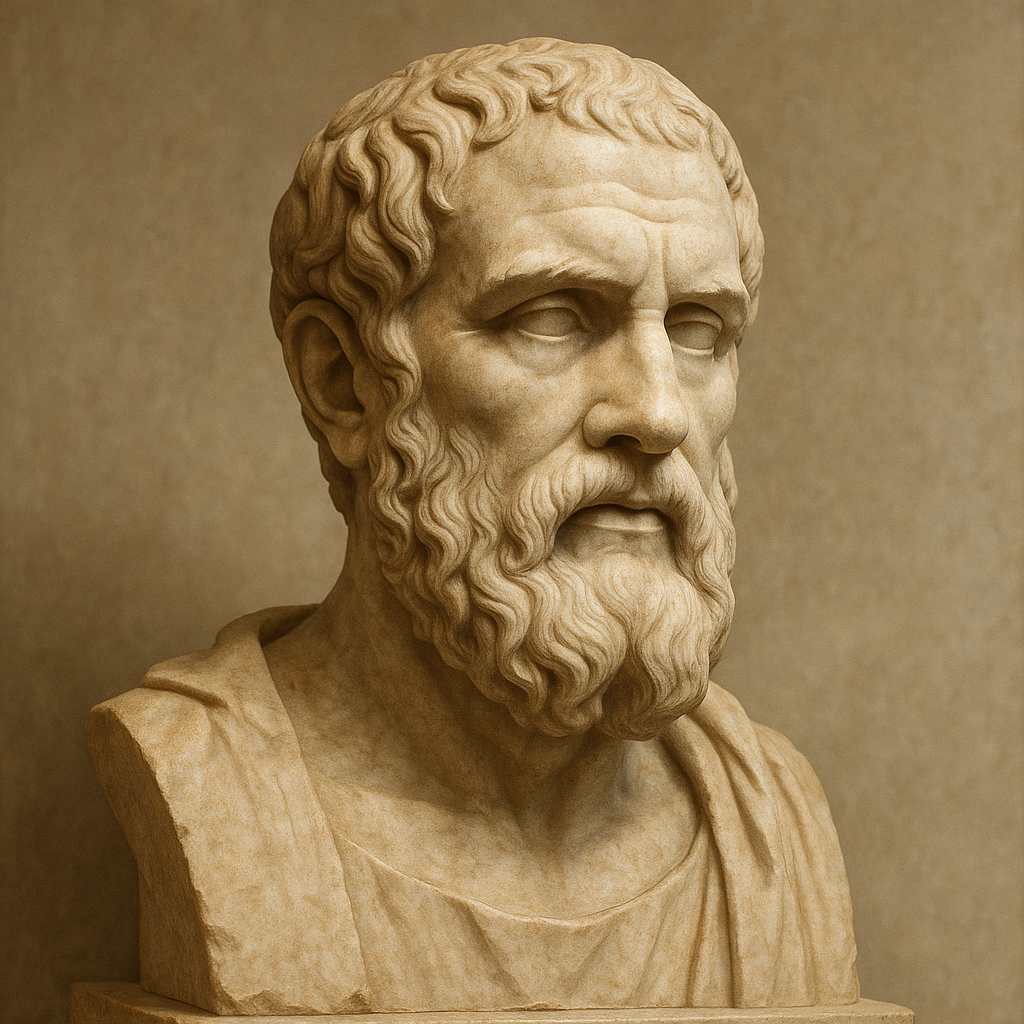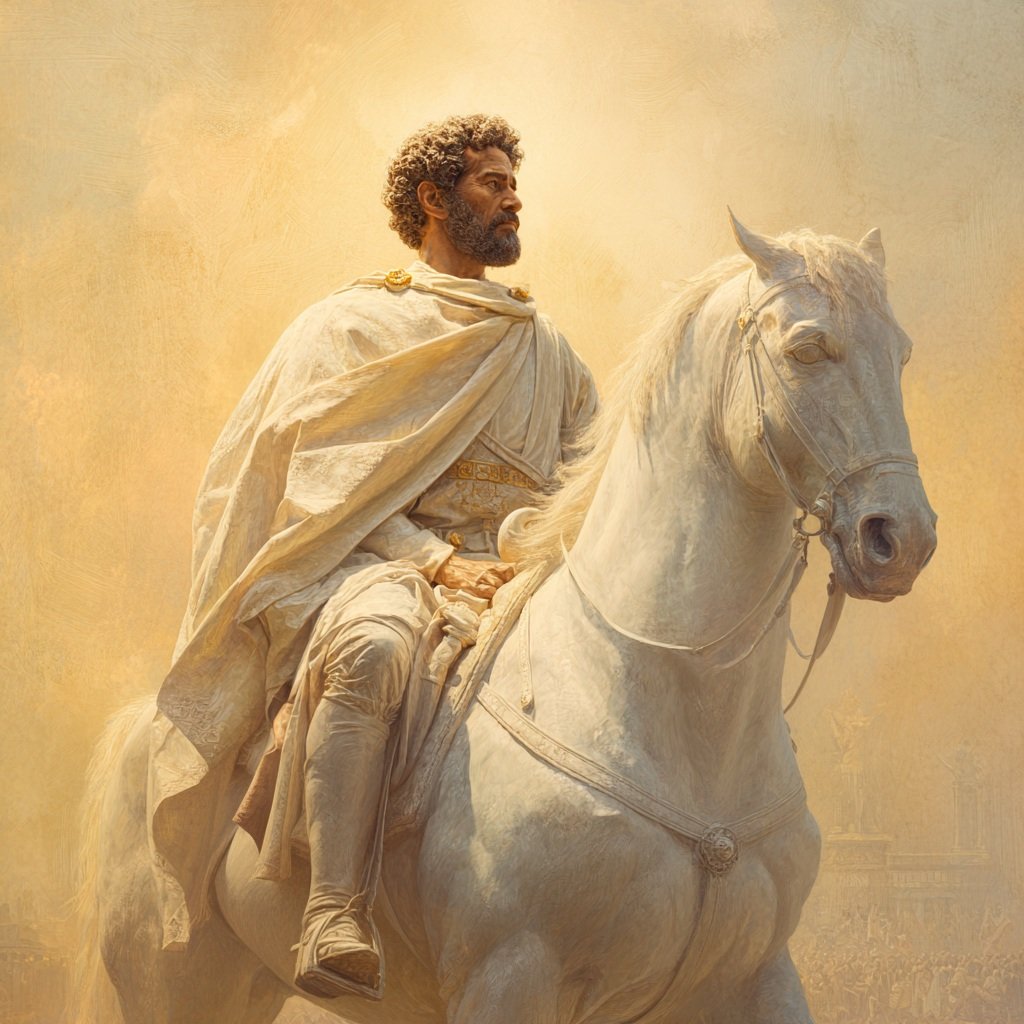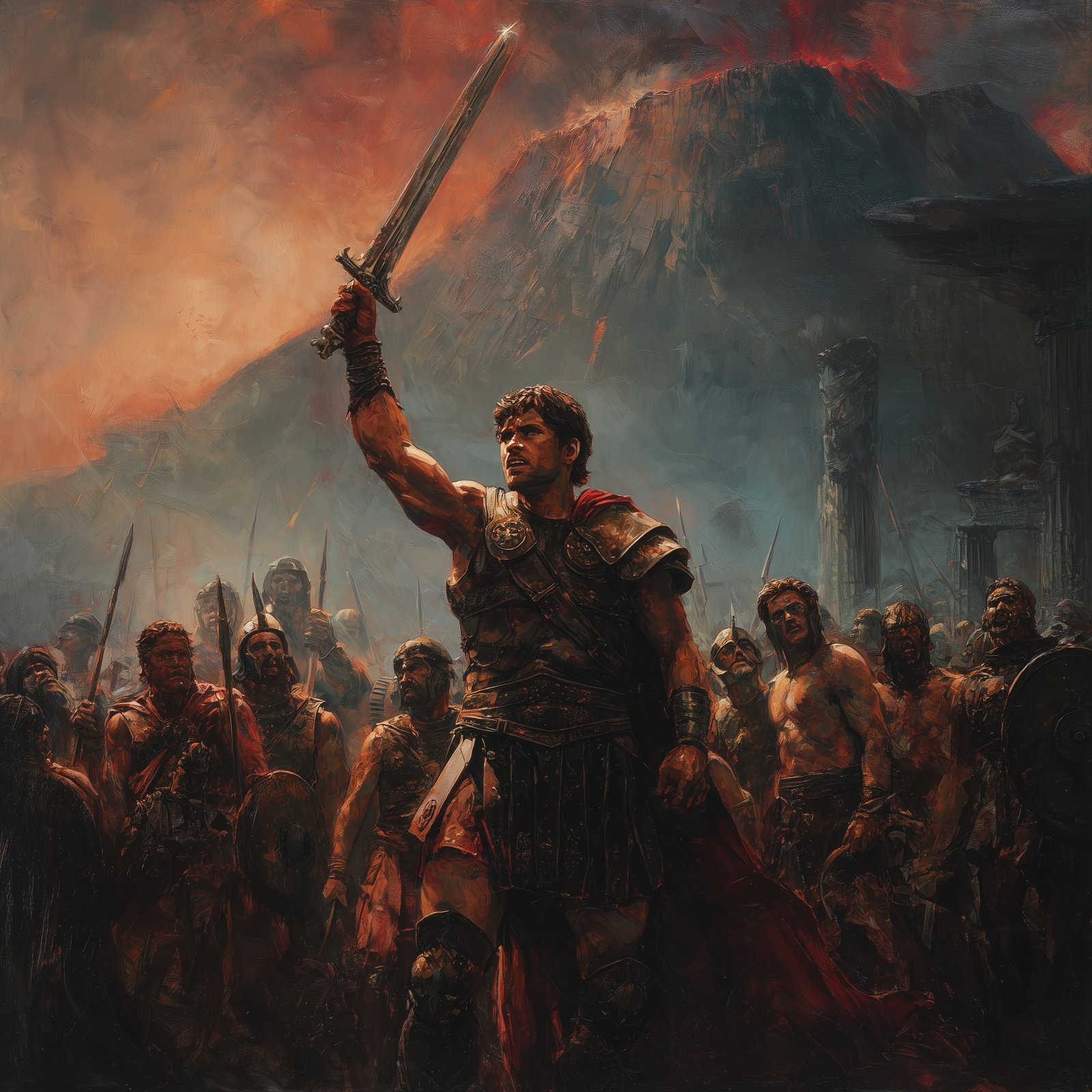Epictetus – The Man Who Managed to Be Free Even in Chains

When you hear “Stoicism,” most people think of Marcus Aurelius or Seneca. But one of the most striking voices of this philosophy was a man who was born a slave, possessed no wealth, health, or status – and yet became one of the most influential thinkers in history.
His name was Epictetus.
Birth and Life in Slavery
Epictetus was born around 55 AD in the city of Hierapolis (modern-day Pamukkale in Turkey), then part of the Roman Empire. His name in Greek means “acquired” or “owned by someone,” reflecting his position – he was born into slavery.
His master was Epaphroditus, the secretary of Emperor Nero, known for his cruelty. Despite this, Epictetus was allowed to attend lectures by the Stoic philosopher Musonius Rufus in Rome. It was here that his thinking was shaped, and he began to understand that true freedom has nothing to do with chains or social status, but with the ability to control one’s mind and reactions.
The Path to Teaching
After the death of Emperor Nero and political changes in Rome, Epictetus was freed. He made the most of this opportunity – becoming a philosopher and teacher. But in 93 AD, Emperor Domitian expelled all philosophers from Rome. Epictetus moved to Nicopolis in Epirus (modern-day Greece), where he founded his own philosophical school.
His school became a center of Stoic thought. He never wrote books – what we know of his teachings was preserved by his student Arrian, who recorded his lectures in the Discourses and a short handbook of principles known as the Enchiridion.
Philosophy of Epictetus
According to Epictetus, a person cannot control what happens “out there”—the world, events, or the behavior of others. Yet they always have full power over how they respond. This, he believed, is where true freedom lies.
The key is to distinguish between what depends on us and what is beyond our control:
- Within our power: our opinions, decisions, desires, fears—our inner attitude with which we respond to life.
- Beyond our power: the body, wealth, fame, recognition, health, social status—everything that fate can change at any moment.
Epictetus warned that most human suffering comes from the futile attempt to control what cannot be controlled. When we learn to accept unchangeable circumstances with calmness and focus our energy on our own mind and actions, we cease to be slaves to the external world.
His Way of Life
Epictetus lived exactly as he taught—simply and without unnecessary possessions. He never married and had no children of his own. In his later years, however, he took an orphan into his care, providing the child with a home and protection.
He avoided ostentation, wore modest clothing, and was content with little, believing that true wealth lies in freedom from desire. His speech was direct, free from ornament or intellectual games—he did not speak to impress, but to change the way his listeners thought about life.
He often drew on everyday examples to show that philosophy was not detached from reality, but rather a practical guide for facing life’s difficulties. Nor did he shy away from criticism when he saw vanity, self-deception, or empty ambition.
Selected Thoughts and Principles of Epictetus
- “It’s not things that disturb us, but our opinions about them.”
- “God gave us two ears and one mouth so that we might listen more than we speak.”
- “The wealthy man is not the one who has much, but the one who needs little.”
- “Live not to please the world, but to please yourself – your reason and your conscience.”
- “Do you want to be free? Then do not entangle yourself in things that enslave you – in the desire for wealth, power, or recognition.”
- “If someone wrongs you with words or deeds, remember that they act according to their own view of the world. If they are mistaken, that is their problem, not yours.”
- “Do not live as if you had a hundred years ahead of you. Death can find you at any moment – be ready.”
Epictetus Today
Epictetus’s teaching has survived for two millennia because it is timeless. In a modern world full of stress and uncertainty, his thoughts about focusing on what we can control and accepting what we cannot change sound more relevant than ever.
His legacy can be summed up in one sentence:
“Freedom and peace are not gifts of the world, but the result of mastering your own mind.”

